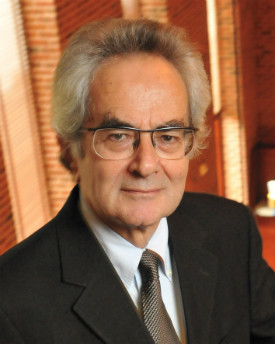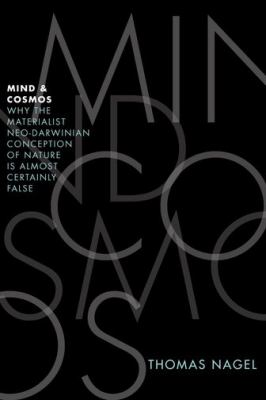Nagel Dumps Darwin
 Thomas Nagel’s book Mind and Cosmos (Oxford, 2012) might not be your first choice for light reading, but it is an astonishing book nonetheless. It’s the sub-title that packs the punch – Why the Materialist Neo-Darwinian Conception of Nature is almost Certainly False.
Thomas Nagel’s book Mind and Cosmos (Oxford, 2012) might not be your first choice for light reading, but it is an astonishing book nonetheless. It’s the sub-title that packs the punch – Why the Materialist Neo-Darwinian Conception of Nature is almost Certainly False.
You would expect any book from Nagel[i], a world-renowned philosopher, to be challenging. But for an atheist like Nagel to debunk neo-Darwinism is indeed a surprise. And the strength of his argument is devastating.
Mind you, the signs were there. In 2009, Nagel selected Stephen Meyer’s book Signature in the Cell – DNA and the Evidence for Intelligent Design (reviewed on this site) as a Times Higher Education Supplement Book of the Year.
And in his current book, in a most revealing passage, he writes:
‘In thinking about these questions I have been stimulated by criticisms of the prevailing scientific world picture from a very different direction: the attack on Darwinism mounted in recent years from a religious perspective by the defenders of intelligent design. Even though writers like Michael Behe and Stephen Meyer are motivated at least in part by their religious beliefs, the empirical arguments they offer against the likelihood that the origin of life and its evolutionary history can be fully explained by physics and chemistry are of great interest in themselves Another skeptic, David Berlinski, has brought out these problems vividly without reference to the design inference. Even if one is not drawn to the alternative of an explanation by the actions of a designer, the problems that these iconoclasts pose for the orthodox scientific consensus should be taken seriously. They do not deserve the scorn with which they are commonly met. It is manifestly unfair.’ (p10)
Clearly, Nagel does not (yet?) accept the position of Intelligent Design, but he recognises its explanatory power and adds:
‘ … the general force of the negative part of the intelligent design position – skepticism about the likelihood of the orthodox reductive view, given the available evidence – does not appear to me to have been destroyed …At least the question should be regarded as open.’ (p11)
 Nagel’s argument, as I understand it, is that the materialistic reductionist view that underpins neo-Darwinism cannot begin to account for mind, consciousness and rationality, and can only regard these imposing phenomena as accidental by-products of the evolutionary process. This simply will not do, he argues, and the clear weakness of Darwinian theory in this regard disqualifies it as a credible explanation of origins. In fact he is quite scathing about it all. He describes Neo-Darwinism as:
Nagel’s argument, as I understand it, is that the materialistic reductionist view that underpins neo-Darwinism cannot begin to account for mind, consciousness and rationality, and can only regard these imposing phenomena as accidental by-products of the evolutionary process. This simply will not do, he argues, and the clear weakness of Darwinian theory in this regard disqualifies it as a credible explanation of origins. In fact he is quite scathing about it all. He describes Neo-Darwinism as:
‘a heroic triumph of ideological theory over common sense’ (p128),
and adds,
‘I would be willing to bet that the present right-thinking consensus will come to seem laughable in a generation or two – though of course it may be replaced by a new consensus that is just as invalid. The human will to believe is inexhaustible.’ (p128) Nagel argues for a more comprehensive theory of origins, but is, at this stage, unable to say what it might involve.
However, his book serves one very useful purpose: it highlights the need to debate these issues dispassionately and logically in search of truth, not dogma. Intelligent design theorists have been arguing for that for more than a decade now.
Dr Alastair Noble
Director
First published 2012, updated 2017
[i] Thomas Nagel is University Professor in the Department of Philosophy and the School of Law at New York University
Image credits:
Thumbnail and article images courtesy of The School of Law at New York University